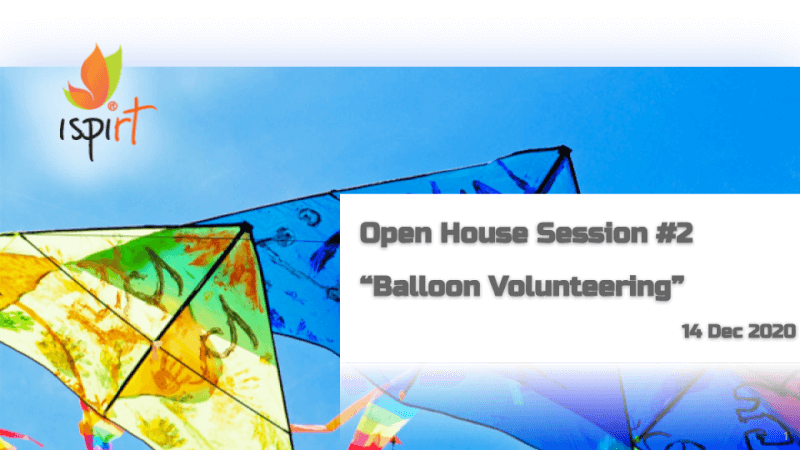We had our second Open House session on Balloon Volunteering on 14th December over Zoom Conference. Do watch the session video to decide if you would like to explore volunteering with iSPIRT.
Till recently, all our new volunteers (aka Balloon Volunteers) came in through referrals from existing volunteers. Eight weeks back, on 20th Sep, we experimented with an open process in the first Open House session (https://pn.ispirt.in/balloon-volunteering).
We explained the process of Balloon Volunteering and shared a few volunteer challenges. Dozens of people registered. We spoke to each of them and worked with them on the next steps. Three applicants have been accepted as Balloon Volunteers so far. This has given us the confidence to go further in opening up our Balloon Volunteering process.
As you know, iSPIRT is a mission-based non-profit technology think tank. In this second Open House session, we talk about this mission so that you can ask yourself if our cause and theory of change animates you. To understand what volunteers do and how they work, you can read our Volunteer Handbook and Playground Coda. Pointers to these documents are on our new Volunteering page https://volunteers.ispirt.in
If our mission motivates you and volunteering is your passion, see if one of the open volunteering challenges resonates with you. You can then apply using one of the forms on the webpage.
However, keep in mind, volunteering is not for everybody. So, don’t be disheartened if you aren’t able to become a Balloon Volunteer right now. All of us grow with time. Volunteering may be the right thing for you a few years down the line. iSPIRT sticks with hard problems for 20-30 years, so you can be sure that there will be many volunteer opportunities in the future!



